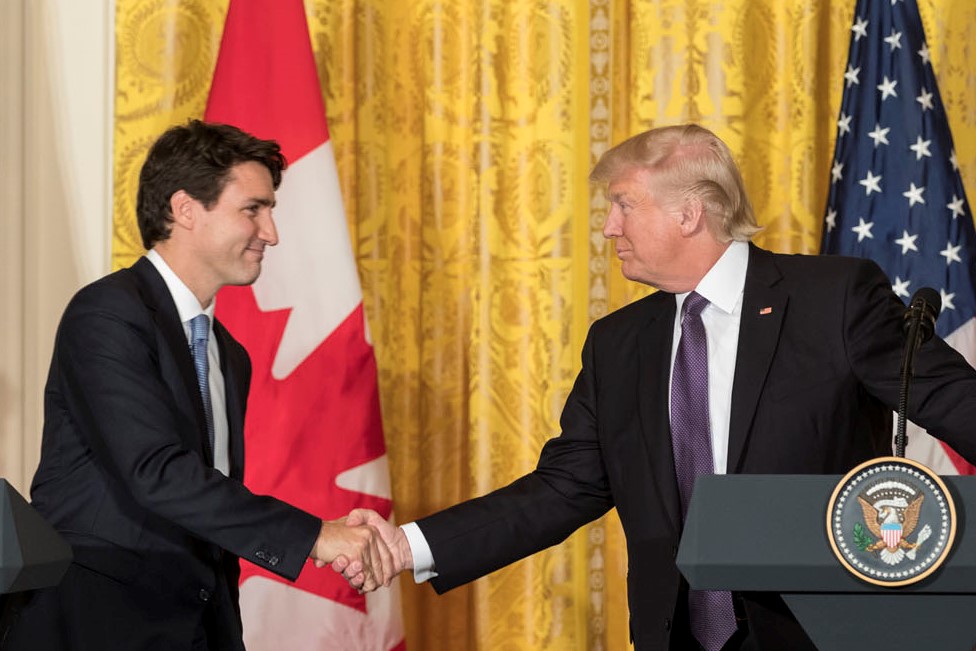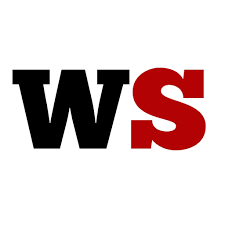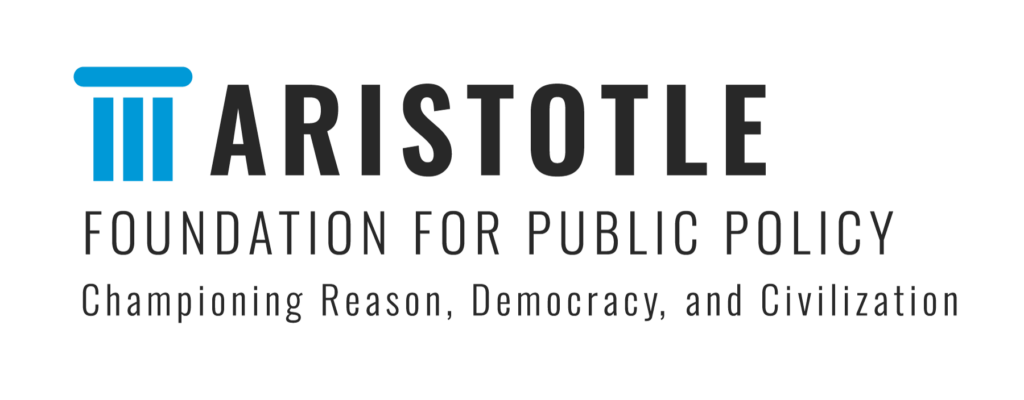

“Put not your trust in princes” — Psalm 145
Mark Milke, Western Standard, February 3, 2024
When the honourable Justice Mosley from the Federal Court slapped down the Trudeau government for using the Emergencies Act two years ago to clear truckers from Ottawa’s streets, the ruling was an encouraging sign: The justice reminded politicians that the rule of law still matters.
The Mosley judgment was useful for another reason: It might remind everyone that it was the institutions built up over centuries, such as the rule of law, that allowed for a mostly free and flourishing Anglosphere. Put differently, free and prosperous societies end up that way not because citizens bend the knee to politicians, autocrats, monarchs, or dictators, but because leaders are forced to bend their knees to the law.
This classic understanding is now regularly under attack in the Anglosphere and not just from a self-proclaimed Canadian French “progressive” such as Justin Trudeau — the French have always tended to Sun-King, French-Revolution, Napoleon tyrant-worship — but also from those opposed to Trudeau on the idea spectrum.
That includes Donald Trump and the small-c conservatives who defend him in Canada.
A few examples now, of how both men are injuring democratic and even civilizational norms
The rule of law
Trump’s disdain for rules and the peaceful transition of power has long been obvious in his lead-up to January 6th 2021 and ever since. Multiple White House staff and lawyers told the president he lost the election. Attorney General Bill Barr told him he lost. Republican state officials in Georgia and Arizona rebuffed Trump’s attempts to “find” votes and overturn election results. Over 60 judges, including some Trump-appointed, found no evidence of fraud that would have made a difference to the 2020 election results. Ivanka Trump rejected her father’s fake claim and J. Michael Luttig, a retired judge with a conservative bent, argued last year that “the evidence is overwhelming that the former president knew full well that he had lost the election.”
And yet Trump continues to claim the 2020 election was stolen.
“I was listening to different people, and when I added it all up, the election was rigged,” Trump informed NBC last year. He added “You know who I listen to? Myself. I saw what happened,” asserting an omniscience heretofore never presumed in presidents.
That includes America’s founding fathers who created a system of separate powers precisely to thwart such delusions ever being actualized by the leader of one branch of necessarily-divided government. It’s astonishing that Trump’s big lie must yet be pointed out as that and also as a fundamental attack on institutions created by America’s founders.
In Canada, we suffer from similar attacks on our English rule-of-law heritage. Justice Mosley’s outing of Justin Trudeau’s 2022 Emergencies Act overreach is only one example.
Recall how in 2017, the federal ethics commissioner found that Trudeau violated four sections of the Conflict of Interest Act, this related to accepting two lavish vacations from the Aga Khan who regularly lobbies the Canadian federal government for grants.
Or recall how in 2019 when the prime minister’s office interfered in the prosecution of Quebec-based SNC-Lavalin, then facing bribery and fraud charges dating from 2015.
The Prime Minister’s office attempted to short-circuit the law by pressuring then-Attorney General Judy Wilson-Raybould to order the Prosecution Service to do a deal.
“The evidence showed there were many ways in which Mr. Trudeau, either directly or through the actions of those under his direction, sought to influence the attorney general,” wrote Ethics Commissioner Mario Dion in his summary.
Trudeau’s attack on prosecutorial independence was bad enough but the 2022 attack on constitutional freedoms amidst the truckers’ protest was even more egregious. Trudeau’s suspension of constitutional rights via the Emergencies Act not only shut down that blockade, it also froze the personal bank accounts of anyone who donated from afar.
That’s not something the prime minister would ever enact vis-à-vis environmental and indigenous protesters who also block streets and occupy public and private property and also for weeks at a time.
In 2022, existing laws could and should have been used to move truckers on as was done at the Coutts, Alberta border crossing. That included charging some participants with conspiring to murder RCMP officers. But in Ottawa, Trudeau suspended constitutional rights and then labelled truckers “a threat to our democracy.”
The rhetoric
Disdain for the rule of law — election laws in the case of the U.S. for Trump and prosecutorial independence and basic civil rights for Trudeau — is one way both the former president and prime minister weaken the institutions that undergird democracy.
But there is another way in which both shred assumed norms: using their bully pulpits to corrode decency. Both Trump and Trudeau do so and against not only opponents, but also against those who serve their country and even the powerless.
Thus Trump still launches verbal attacks against the late Arizona Senator John McCain including a recent sneer about how McCain couldn’t get his “arm up” to vote against Obamacare, this due to McCain’s injuries while a POW in Vietnam.
Recall how Trump mocked a handicapped reporter, questioned U.S. District Judge Gonzalo Curiel’s ruling against Trump because of the judge’s Hispanic ancestry; labelled U.S. Senator Mitch McConnell’s wife as “crazy”, and publicly picked on Judge Arthur Engoron’s law clerk in Trump’s civil fraud trial in New York.
Trump has also insulted women on their weight and looks, language that was once deemed beyond the pale and for which mothers once washed their children’s mouths and for which a father might have boxed a son’s ears. But now it’s been normalized by Trump.
Words have consequences. Trump’s rhetoric leading up to the January 6, 2021 attack on the Capitol is an obvious example. So too how he later defended the “Hang Mike Pence” rioters’ chant.
Up north, Trudeau doesn’t incite followers to break election laws or mock disabled people. But he does excoriate average Canadians when offside with him and in the harshest of terms. Consider again his rhetoric on the truckers’ convoy, broad-brushing all protesters as “white supremacists.” This was after having previously labelled the unvaccinated as likely “misogynists [and] who are often racist as well.”
The silence
In contrast, Trump and Trudeau have also been demonstrably silent or equivocate when innocent people are attacked so long as they are on their side. Trump was dead-silent for three hours while the MAGA mob sacked Congress despite pleas from his staff to say something.
In Canada, nearly 100 churches have since been set aflame since the falsely alleged “discovery” of mass graves at the Kamloops Indian residential school. Trudeau finally called the arson “unacceptable and wrong” but added that it was “understandable given the shameful history [of churches and the federal government].
Trudeau’s silence has been on display as anti-Israel/Hamas-sympathetic “protests” have spread since the October 7 Hamas massacre of over 1,100 Israelis and others.
Protesters have vandalized Jewish businesses, threatened police and anti-Israel and anti-Semitic bile has poured forth from a government union, academics and students and imams who call for Israel’s destruction.
Demonstrations have included shutting down highways, streets, disrupting Christmas lights-ups and shoppers at malls. I can find no clear Trudeau rebuke to the Hamas-sympathetic “protesters.” It’s why columnist Don Martin wrote in frustration that “Trudeau emphatically condemns any perceived infringements on LGBTQ2S+ rights, any whisper of abortion limitations, any hint of a parent’s right to know about their child’s gender preferences, or any sign of Islamophobia [but] has stayed silent on anti-Israel protests in Canada.”
Tyrant-praise
Unlike their rhetoric about opponents or just citizens, both Trudeau and Trump have an odd soft spot for tyrants. Trump praised North Korea’s dictator Kim Jong Un in 2018 as “strong”, “funny,” “smart,” “strategic,” and complimented his negotiating skills while tagging him as (the other) “great leader.” Trump flattered Vladimir Putin as a “genius” and “savvy” for his of invasion of Ukraine, and thought him “smart” for being able to do so despite sanctions.
Justin Trudeau likewise praises autocrats and tyrants — not because like Trump, he admires their flexed strategic strong-man “muscles” but because he likes their top-down political systems.
Following in a family tradition, the prime minister regularly praises autocrats, tyrants and repressive countries. In 2013, Trudeau mused admiringly about China’s presumed “ability” to move quick on Trudeau’s desired green revolution: “Their basic dictatorship is allowing them to actually turn their economy around on a dime and say ‘we need to go green fastest, we need to start investing in solar,’” opined Trudeau.
In 2016, Trudeau was officially weepy about the death of family friend, Fidel Castro, Cuba’s long-serving dictator. The prime minister’s official announcement was a de facto eulogy and included statements of “deep sorrow” and how “Cuba’s longest serving President” was a “larger than life leader who served his people for almost half a century” and who “made significant improvements to the education and healthcare of his island nation.”
Trudeau was wrong about Cuba’s purported socialist improvements. Also wrong was his claim that “the Cuban people had a deep and lasting affection for “el Comandante.” The continual flight of Cubans to Florida for more than six decades, suggests otherwise.
The Trudeau-Trump moral equivalence trap
Trudeau and Trump have busily undercut Western norms and practices in other ways.
Trudeau regularly parrots the notion that Canada is a nearly illegitimate nation-state “overrun by settlers.” It’s why Trudeau breezily asserts that the creation of 19th century Indian residential schools by teachers, nuns, missionaries, priests, and pastors and later by civil servants were “genocidal” as opposed to injurious where abuses did occur (as they did).
Trump also regularly disparages historic Western achievements by slagging American exceptionalism with moral equivalence.
Unlike Trudeau, Trump is not doing so from a position of “wokeness.” Instead, Trump hasn’t grasped that there’s a vast moral difference between the pre-1960s inexecrable denial of civil rights to black Americans and the gulags and genocides enacted by state and non-state actors as diverse as German Nazis, China’s Chairman Mao, Cambodia’s Khmer Rouge and Rwanda’s Hutu-driven genocide, to name but a few.
In other words, both Trump and Trudeau make the same mistake: A willing failure to make critical distinctions.
Why it matters: It took centuries for democratic norms to become normal
The institutions and norms that undergird the civilized, free and prosperous societies built in the Anglosphere over the centuries, and increasingly other countries and territories in the post-war world, never arrived at such a blessed state due to a reliance on “great” leaders. Our freedoms are instead anchored in great institutions.
Those have been under development since 1215 when the Magna Carta first limited the power of monarchs to pinch your property and were expanded upon in the 1688 Glorious Revolution. (The latter put a permanent fork in the notion that absolute and divine power was somehow desirable.)
In contrast, be it deifying monarchs and tyrants in Europe, Asia, and Africa, giving religious autocrats control (Iran as a modern example); and letting caudillo autocrats in Latin America run the show, leaders who run roughshod over their populations have been the norm in most of human history.
And intentions are irrelevant. The departure from leader-worship occurs exactly when citizens figure out that leaders and everyone else with power must be subject to the rule of law including limits on power because, as Lord Acton famously observed, power corrupts and absolute power corrupts absolutely.
That’s why even well-intentioned leaders cannot be given absolute power: They are not omniscient, not exempt from error and not exempt from evil.
Defenders of Trudeau and Trump should resist the temptation to place a premium on princes and chronic apologias for the same. They should instead defend our hard-won institutions paid for in time, treasure and blood.
Mark Milke is the founder and president of the Aristotle Foundation for Public Policy and editor of The 1867 Project: Why Canada Should Be Cherished, Not Cancelled.
Like our work? Think more Canadians should see the facts? Please consider making a donation to the Aristotle Foundation.

The logo and text are signs that each alone and in combination are being used as unregistered trademarks owned by the Aristotle Foundation. All rights reserved.
The Aristotle Foundation for Public Policy is a registered Canadian charity. Our charitable number is: 78832 1107 RR0001.
SUBSCRIBE TO OUR NEWSLETTER